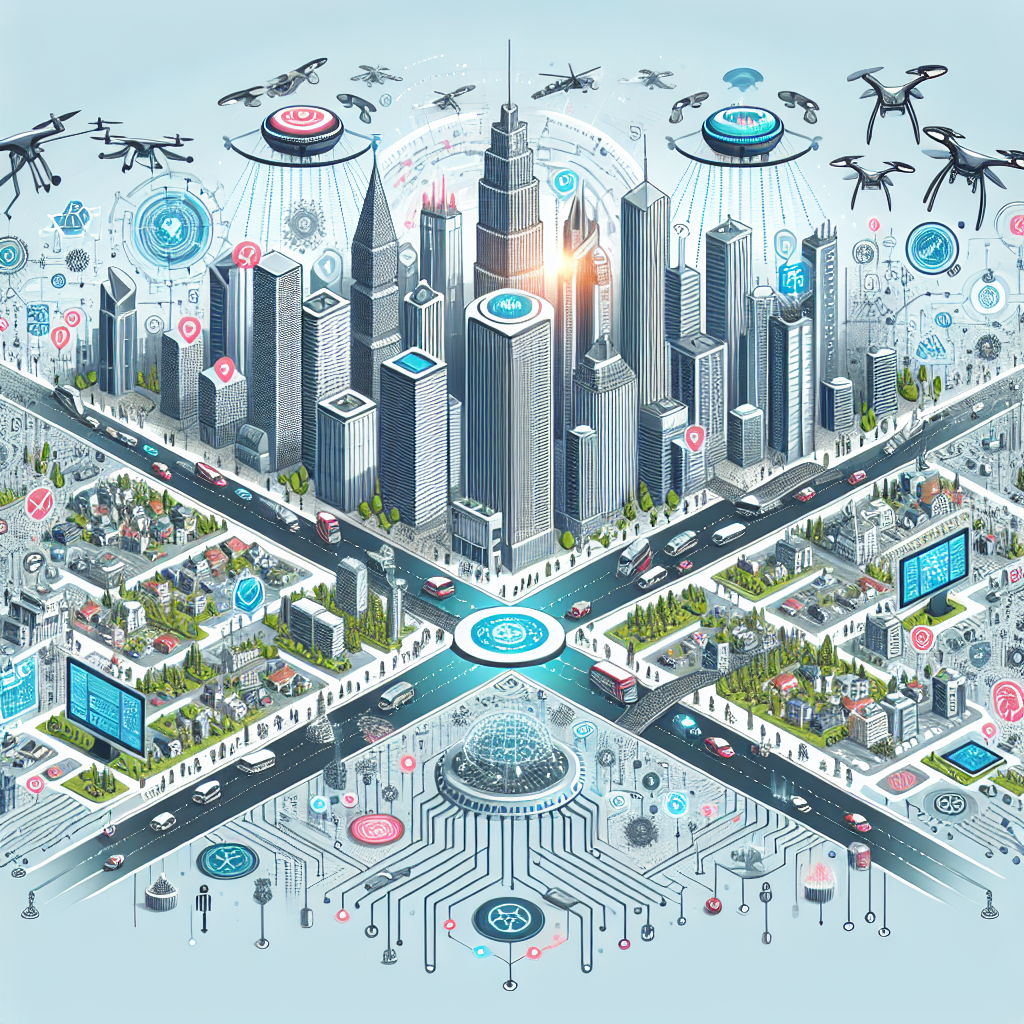The Future of AI Deployment in Smart Cities
In recent years, the concept of smart cities has gained significant traction as a means of addressing the complex challenges of urbanization. With the rise of technological advancements such as artificial intelligence (AI), the potential for creating smarter, more efficient, and sustainable urban environments has become increasingly promising. AI deployment in smart cities has the potential to revolutionize the way cities are managed, from transportation and energy to healthcare and public safety.
AI technologies, such as machine learning and natural language processing, have the ability to analyze vast amounts of data in real-time, enabling cities to make better decisions and improve service delivery. By leveraging AI, cities can optimize traffic flow, reduce energy consumption, enhance public safety, and provide personalized services to residents. The deployment of AI in smart cities is expected to have a significant impact on urban living, offering numerous benefits in terms of efficiency, sustainability, and quality of life.
One of the key areas where AI deployment in smart cities is already making a difference is transportation. AI-powered traffic management systems can analyze traffic patterns and adjust signals in real-time to reduce congestion and improve the flow of vehicles. By using predictive analytics, cities can anticipate traffic jams and optimize routes to minimize delays. AI-enabled public transportation systems can also provide real-time information to commuters, helping them make informed decisions about their travel routes.
Another area where AI deployment in smart cities is having a significant impact is energy management. AI technologies can analyze energy consumption patterns and optimize the use of resources to reduce waste and lower costs. Smart grids powered by AI can help cities monitor and manage energy distribution more efficiently, leading to greater sustainability and lower carbon emissions. AI-powered energy management systems can also enable cities to integrate renewable energy sources more effectively, further reducing their environmental footprint.
AI deployment in smart cities is also transforming public safety and security. Smart surveillance systems equipped with AI can analyze video feeds in real-time to detect and respond to potential threats. By using facial recognition technology and predictive analytics, cities can improve their ability to prevent crimes and respond to emergencies more effectively. AI-powered drones and robots can be deployed to assist law enforcement agencies in patrolling high-risk areas and providing support during disasters.
In the healthcare sector, AI deployment in smart cities is revolutionizing the way medical services are delivered. AI-powered telemedicine platforms can connect patients with healthcare providers remotely, improving access to care and reducing healthcare costs. AI algorithms can also analyze medical data to detect patterns and trends that can help in diagnosing diseases and developing personalized treatment plans. By leveraging AI in healthcare, smart cities can improve the quality of healthcare services and enhance the overall well-being of their residents.
As the deployment of AI in smart cities continues to evolve, there are several opportunities and challenges that need to be addressed. One of the key challenges is ensuring the privacy and security of data collected by AI systems. Cities must implement robust data protection measures and comply with regulations to safeguard the personal information of their residents. Additionally, there is a need for skilled professionals to develop and maintain AI systems, as well as for collaboration between public and private sectors to foster innovation and investment in AI technologies.
FAQs
Q: How will AI deployment in smart cities impact the job market?
A: While AI deployment in smart cities is expected to automate certain tasks, it will also create new job opportunities in areas such as data analysis, software development, and system maintenance. Cities will need skilled professionals to manage and optimize AI systems, leading to the creation of new jobs in the tech sector.
Q: How can AI deployment in smart cities improve sustainability?
A: AI technologies can optimize energy consumption, reduce waste, and promote the use of renewable resources, leading to greater sustainability in smart cities. By analyzing data in real-time, AI systems can help cities make informed decisions about resource management and environmental conservation.
Q: What are some of the ethical considerations surrounding AI deployment in smart cities?
A: Ethical considerations such as privacy, bias, and accountability are important when deploying AI in smart cities. Cities must ensure that AI systems are transparent, fair, and accountable in their decision-making processes, and that they protect the rights and freedoms of their residents.
Q: How can residents benefit from AI deployment in smart cities?
A: Residents can benefit from AI deployment in smart cities in various ways, including improved transportation services, enhanced public safety, personalized healthcare, and greater access to information and services. AI technologies can help cities provide better quality of life for their residents by optimizing resources and improving service delivery.
In conclusion, the deployment of AI in smart cities holds great promise for transforming urban environments and improving the quality of life for residents. By leveraging AI technologies in transportation, energy, public safety, and healthcare, cities can optimize their resources, reduce costs, and enhance sustainability. As AI deployment in smart cities continues to evolve, it is essential for cities to address the challenges and opportunities that come with integrating AI systems into their infrastructure. Through collaboration and innovation, smart cities can harness the power of AI to create more efficient, sustainable, and livable urban environments for their residents.

